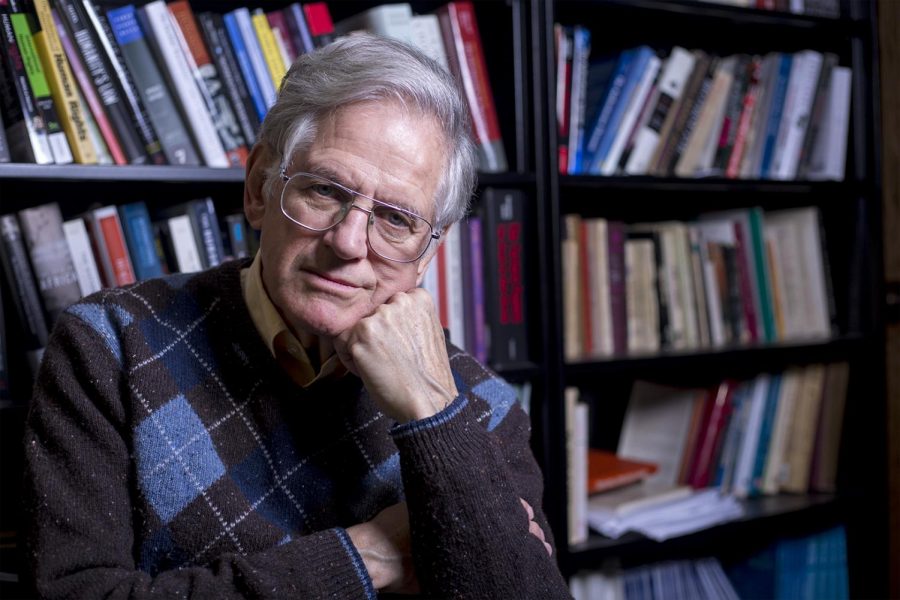Professor appointed to human rights task force
February 2, 2017
A WKU professor has been appointed to a task force working to promote and protect human rights internationally.
Professor Emeritus and human rights activist Sam McFarland was appointed to the American Psychological Association’s Task Force on Human Rights. The task force aims to identify what the APA is already doing well in regards to human rights and what the organization could be doing better.
“In the end, what our task force is about is what is the APA doing and what is the APA not doing and ought to be doing,” McFarland said.
The task force, which consists of six members, was created in response to a lapse in human rights protections during the early 2000s. In 1994, the U.S. ratified what is commonly known as the Convention Against Torture. This convention stated torture could not be justified under any circumstances.
The U.S. followed this convention until after 9/11, when the government redefined torture as being limited to acts that would cause serious maiming or death. These enhanced torture techniques were used until 2008. During this time, some groups such as the American Medical Association condemned this newer, lax definition of torture as a violation of the Convention Against Torture and ethical standards; the APA did not.
By identifying possible problems with human rights protections, the task force hopes to prevent the APA from making the same mistake in the future.
“I don’t think it’s ever going to happen again in APA,” McFarland said. “If that happens again, APA would be an opponent and not a supporter. I’m sure of that.”
The task force has been assigned to produce a report for the APA that will review the organization’s current activities and make recommendations for future human rights related activities.
McFarland has written several sections of the task force’s report, including a definition of human rights in relation to psychology. The APA’s website states this definition will, among other things, “clarify the relationship of human rights to APA’s mission” and “frame and guide APA’s work to promote human rights.”
McFarland has also written a section regarding the distinction between human rights and social justice. He explained the APA currently follows a social justice framework, and the task force would like the association to move to a human rights framework instead.
“Think of equality as a guiding theme for APA,” McFarland said. “Human rights is broader than that. Human rights is absolutistic. The right not to be tortured is not the right to be tortured less than somebody else; it’s the right not to be tortured.”
McFarland also wrote a distinction between human rights and human welfare, and plans to recommend the APA provides reparations to past victims of torture.
“People who have been tortured have a right to mental health treatment,” he said. “People who have been tortured have a right to financial amelioration. APA has provided neither.”
McFarland said he hopes the APA will create a standing committee in place of the task force to continue monitoring international human rights issues. This committee would be able to advise the APA’s governing council and bring possible issues to its attention.
“In the end, I hope that it will make the American Psychological Association much more attuned to potential human rights abuses and much more attuned to ways in which it can advance human rights, both through its science and its advocacy,” McFarland said.
McFarland has also put an emphasis on teaching college students about human rights and said many students don’t know much about the often-untaught subject. After teaching his last class at WKU in 2013, McFarland authored Human Rights 101: A Brief College-Level Overview, which is an online publication free to download for any student or teacher interested in the topic. Since McFarland retired, no human rights courses have been offered at WKU.
“Students — honors students, juniors and seniors — come into my class and say, ‘I never knew any of that,’” McFarland said. “That was a fairly common reaction.”
After a pause McFarland added, “Human rights is the most important untaught subject matter in American education.”
Reporter Jamie Williams can be reached at 270-745-6011 and [email protected].





















![Students cheer for Senator at Large Jaden Marshall after being announced as the Intercultural Student Engagement Center Senator for the 24th Senate on Wednesday, April 17 in the Senate Chamber in DSU. Ive done everything in my power, Ive said it 100 times, to be for the students, Marshall said. So, not only to win, but to hear that reaction for me by the other students is just something that shows people actually care about me [and] really support me.](https://wkuherald.com/wp-content/uploads/2024/04/jadenmarshall-600x422.jpg)

